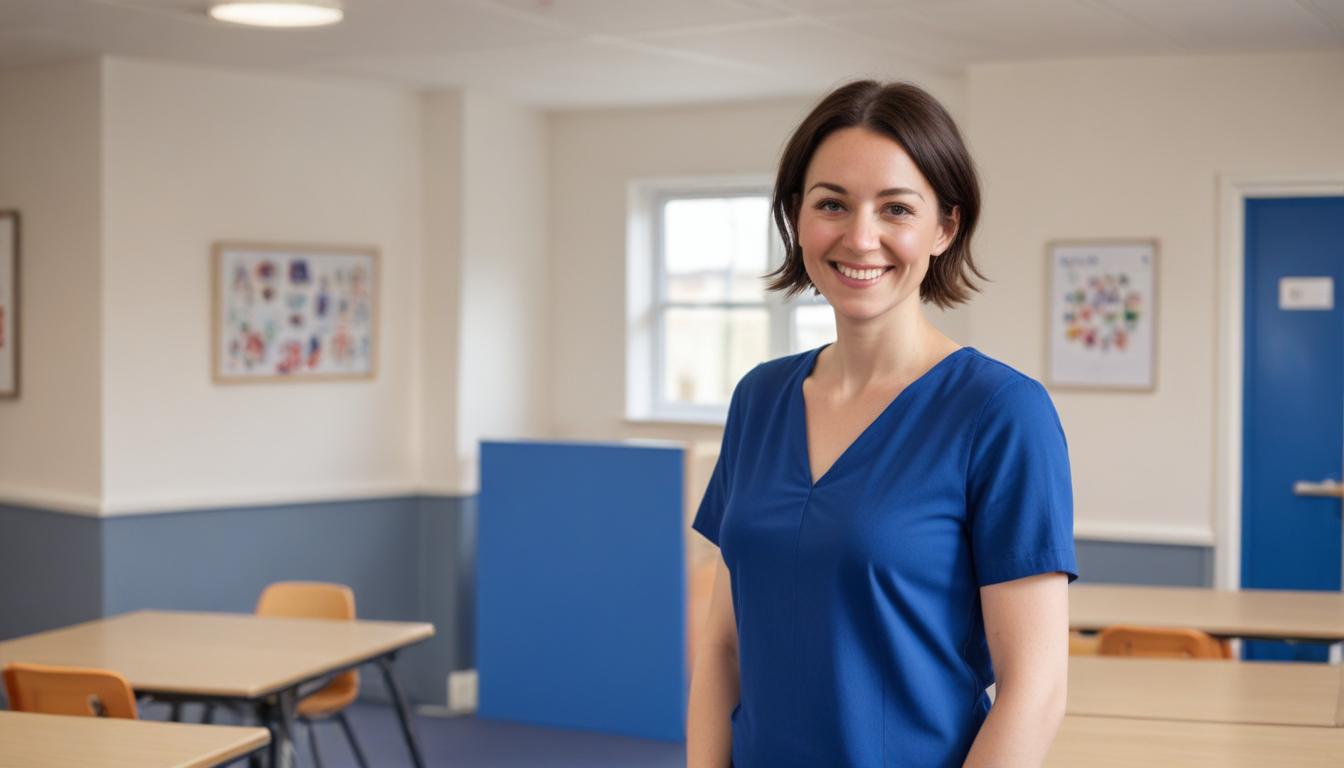
Summary
- Communication with Parents: Early Years Practitioners should engage with parents to gather information about the child’s fears and concerns regarding their hospital stay, ensuring a consistent approach to support.
- Supportive Environment: Creating a safe and comforting atmosphere allows children to express their feelings and ask questions, helping to alleviate their anxiety about the hospital.
- Preparation Techniques: Role play and storytelling can help children understand what to expect, making the hospital experience less intimidating and more relatable.
- Ongoing Support: After the hospital stay, continued emotional support is essential for helping children process their experiences and maintain their wellbeing.
This guide will help you answer 6.1 Describe how the Early Years practitioner supports a child to prepare for a stay in hospital.
Preparing a child for a hospital stay involves careful planning and emotional support. As an Early Years Practitioner, you play an important role in ensuring the child feels safe and confident. This preparation helps reduce anxiety and builds trust between you, the child, and their family.
Communication with Parents and Carers
Start by talking to the child’s parents or carers. Gather all relevant information about the hospital stay, such as the duration and any procedures the child might undergo.
- Discuss how the child usually reacts to new situations.
- Identify any specific fears or concerns the child might have.
- Coordinate with parents to maintain a consistent approach.
By working collaboratively with the parents, you ensure everyone is on the same page and the child receives consistent messages of reassurance.
Creating a Supportive Environment
Set up a comforting environment where the child feels safe to express their feelings. This involves creating a space where they can ask questions and talk about their worries.
- Use child-friendly language to explain the hospital visit.
- Offer simple, honest explanations about what will happen.
- Assure them that they will not be alone and family members can visit.
A supportive environment helps reduce the fear of the unknown and encourages the child to voice concerns.
Role Play and Storytelling
Engage the child in role play and storytelling activities. These techniques are effective ways to explain hospital procedures in an understandable manner.
- Use dolls or toy medical kits to simulate the hospital experience.
- Encourage the child to act out different roles, such as doctor or patient.
- Share stories or books about characters who have had positive hospital experiences.
Role play and storytelling make the concept of going to the hospital more relatable and less daunting for the child.
Visit to the Hospital
If possible, organise a pre-visit to the hospital. Familiarising the child with the hospital environment can alleviate fears.
- Arrange for the child to see the ward and meet the healthcare professionals.
- Show the child where they will stay and what they might see.
- Answer any questions that arise during the visit.
A visit helps demystify the hospital setting and helps the child know what to expect.
Supporting Emotional Wellbeing
Focus on the child’s emotional wellbeing throughout the preparation process. Acknowledge their feelings and provide comfort.
- Use activities like drawing or writing to help the child express emotions.
- Encourage the child to talk about their feelings openly.
- Provide positive reinforcement and reassurance.
Emotion-focused support builds resilience and helps the child manage any anxiety they might feel.
Involving the Child in Planning
Involve the child in planning for their hospital stay. Giving them some control can empower them and reduce anxiety.
- Let the child choose items to pack, such as a favourite toy or blanket.
- Discuss their daily routine and what might change during the hospital stay.
- Talk about things they enjoy and how they can have similar experiences in the hospital.
By involving the child, you help them feel more prepared and in control of their experience.
Providing Information to Healthcare Staff
Collaborate with healthcare staff to ensure they understand the child’s needs and preferences.
- Share relevant information about the child’s likes, dislikes, and routines.
- Communicate any particular fears or concerns the child has expressed.
- Discuss any strategies that work well in calming the child.
Effective communication with healthcare staff ensures the child’s experience is as positive as possible.
Using Visual Aids
Visual aids can help explain complex information simply. They are especially useful for younger children.
- Use visual schedules to show the order of events during their stay.
- Create picture cards to represent medical procedures or equipment.
- Provide visual timetables of the day’s activities to offer predictability.
Visual aids cater to the child’s level of understanding and provide clarity.
Significance of Consistency
Maintain consistency across all areas of preparation. Consistent messages and routines provide a sense of stability.
- Ensure that all adults involved provide the same reassurances and use similar language.
- Stick to familiar routines where possible, such as bedtime stories or mealtimes.
- Keep familiar items with the child, like favourite toys or comforting objects.
Consistency reassures the child and reduces stress by providing a sense of normalcy.
Follow-up Support
Continue to support the child after their hospital stay. Reflect on their experience and discuss any feelings that may arise.
- Engage in activities that reassure them, such as drawing or storytelling.
- Encourage them to share what they enjoyed or found challenging.
- Maintain open communication with the child and their family.
Follow-up support helps the child process their experience and fosters ongoing emotional wellbeing.
Your role as an Early Years Practitioner in preparing a child for a hospital stay is essential. By providing emotional support, clear communication, and consistent reassurance, you help ensure a smooth transition and positive experience for the child.
Subscribe to Newsletter
Get the latest news and updates from Care Learning and be first to know about our free courses when they launch.






